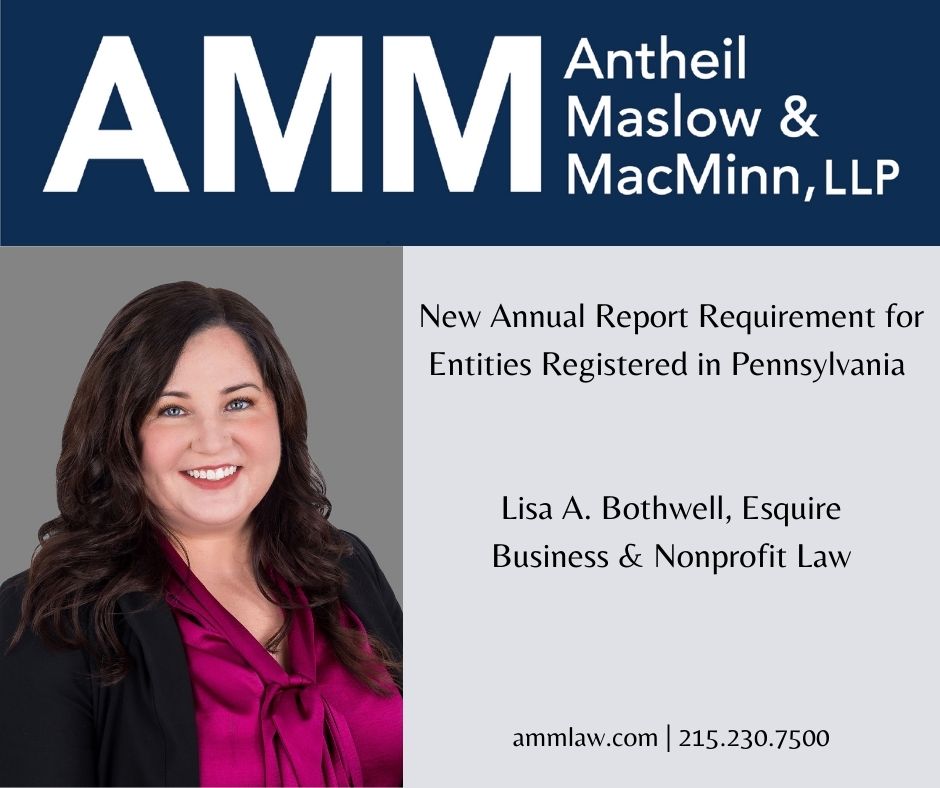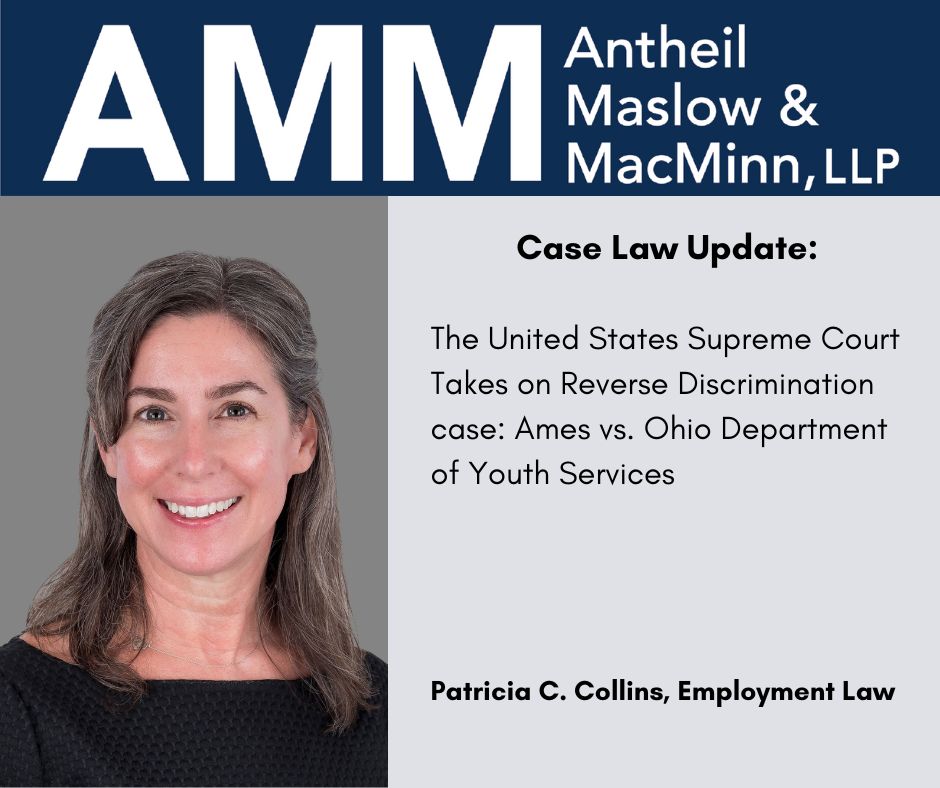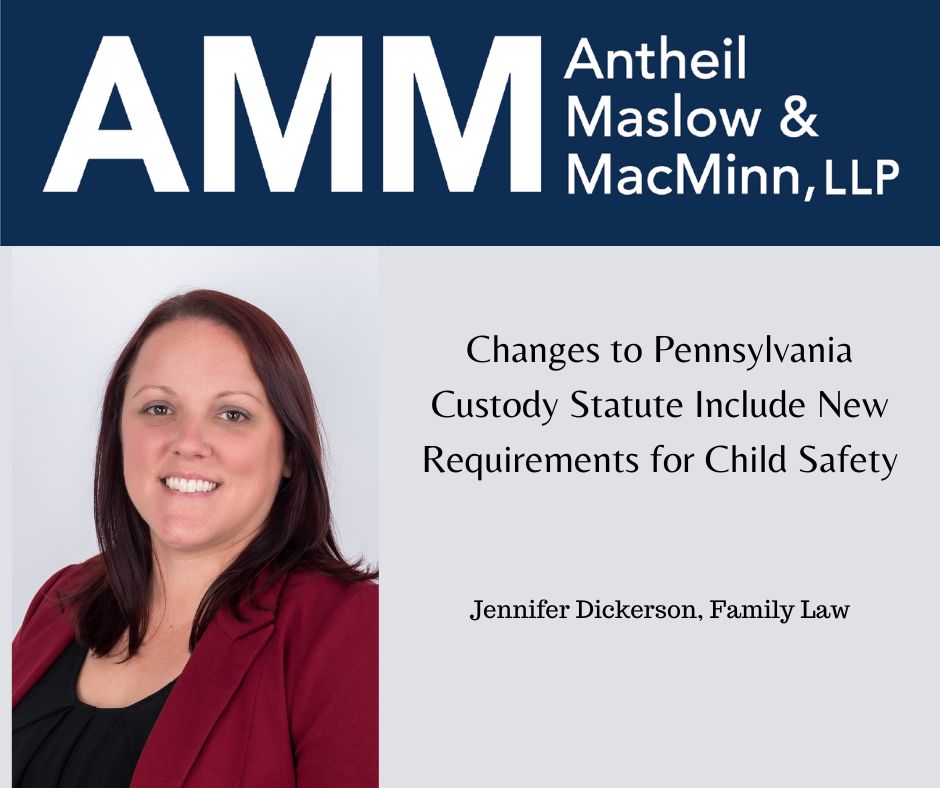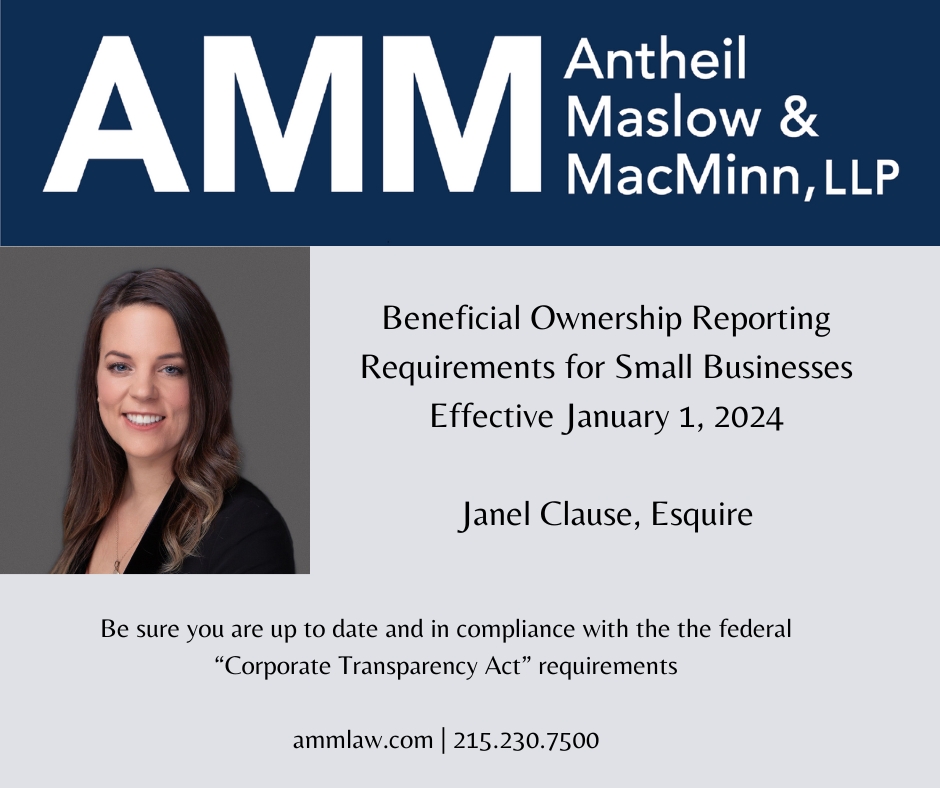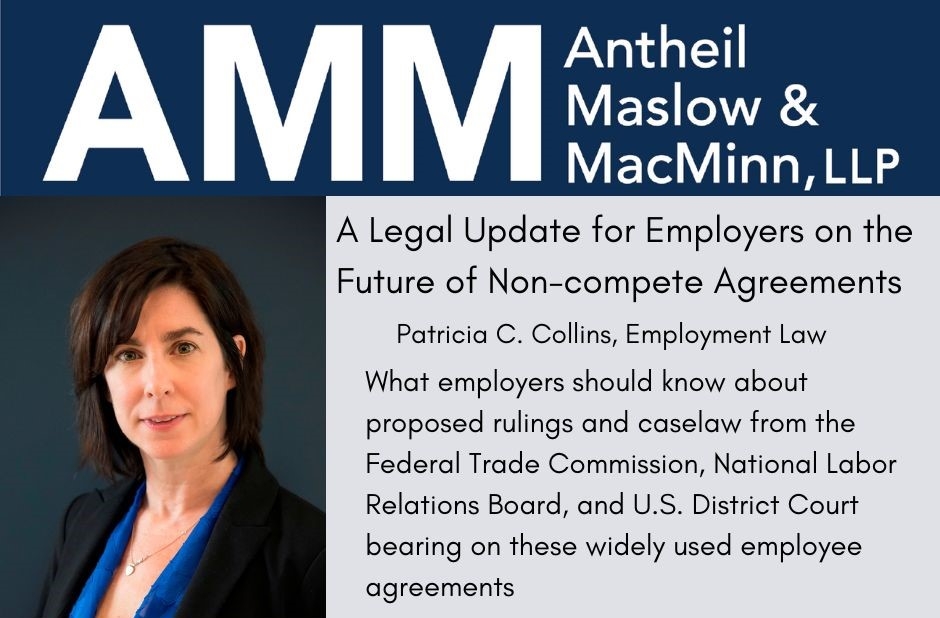Reprinted with permission from the February 24th edition of The Legal Intelligencer. (c) 2025 ALM Media Properties. Further duplication without...
New Annual Report Requirement for Entities Registered in Pennsylvania
Pennsylvania’s Bureau of Corporations and Charitable Organizations has started contacting businesses regarding its new annual report requirement. Effective January 1,...
The Corporate Transparency Act: Injunction Remains in Place
As we reported in a previous client alert, the U.S. District Court for the Eastern District of Texas issued...
The Corporate Transparency Act: Latest Developments
As you probably heard, the U.S. District Court for the Eastern District of Texas issued a nationwide preliminary injunction on...
The United States Supreme Court Takes on Reverse Discrimination Case
Reprinted with permission from the October 14th edition of The Legal Intelligencer. (c) 2024 ALM Media Properties. Further duplication without...
There is Life Insurance After Death – the Impact of Connelly v. United States
Attention owners of closely held businesses! A recent decision by the Supreme Court could impact the amount of taxes owed...
Changes to Pennsylvania Custody Statute Include New Requirements for Child Safety
As of August 13, 2024, a number of changes have been made to the custody statute in Pennsylvania, which may...
FTC Non-Compete Rule: Legal Challenges Complicate the Compliance Timeline
Reprinted with permission from the June 8th edition of The Legal Intelligencer. (c) 2024 ALM Media Properties. Further duplication...
The Federal Trade Commission’s Final Rule Bans Most Non-Competes
On April 23, 2023, the Federal Trade Commission (“FTC”) issued a final rule imposing a broad restriction on non-competition agreements...
As Promised: Beneficial Ownership Reporting Requirements Went Into Effect January 1, 2024
For the past couple years, we warned you in our business law blog that this time would come. It’s...
The Department of Labor’s New Independent Contractor Rule
Reprinted with permission from the February June 13th edition of The Legal Intelligencer. (c) 2024 ALM Media Properties. Further duplication...
The Federal Trade Commission’s Campaign to Eliminate Non-Competes
Reprinted from the October 18th edition of The Legal Intelligencer. (c) 2023 ALM Media Properties. Further duplication without permission is...
They Are Here: Beneficial Ownership Reporting Requirements for Small Businesses Go Into Effect January 1, 2024
Last year, we warned you in our business law blog that a new law, the federal Corporate Transparency Act, would...
Celebrities Have Prenups – Do I Need One Too?
With yet another celebrity divorce making headlines, this time with Joe Jonas and Sophie Turner, there is more buzz on...
The Ninth Circuit Permits a Title VII Claim Based On Offensive Music in the Work Place
Reprinted from the April 20th edition of The Legal Intelligencer. (c) 2023 ALM Media Properties. Further duplication without permission is...
The ESG Backlash: Politics and Shareholder Primacy
Reprinted from the April 2023 edition of Business Law Today. Further duplication without permission is prohibited. By Susan A. Maslow...
Pennsylvania Human Relations Commission Adopts Specific Definitions of Protected Classes
Reprinted from the April 20th edition of The Legal Intelligencer. (c) 2023 ALM Media Properties. Further duplication without permission is...
The Federal Trade Commission’s Proposed Ban On Non-Competes
Reprinted from the February 10th edition of The Legal Intelligencer. (c) 2022 ALM Media Properties. Further duplication without permission is...
The Trafficking Victims Protection Act and Liquidated Damages Provisions in Employment Agreements
Reprinted with permission from the October 14th edition of The Legal Intelligencer. (c) 2022 ALM Media Properties. Further duplication without...
Coming Soon: Beneficial Ownership Reporting Requirements for Small Businesses
On January 1, 2021, Congress enacted the Federal Corporate Transparency Act (the “CTA”), pursuant to which a secure database will...
OPEN ADOPTION – WHAT IS IT?
In the state of Pennsylvania, there exists the concept of “open adoption.” The term itself sounds a little strange since...
SUPREME COURT NARROWS THE APPLICATION OF THE FEDERAL ARBITRATION ACT
Reprinted with permission from the June 23rd edition of The Legal Intelligencer. (c) 2021 ALM Media Properties. Further duplication without...
Lessons from a Blockbuster Section 1981 Jury Verdict
Reprinted with permission from the April 14th edition of The Legal Intelligencer. (c) 2021 ALM Media Properties. Further duplication without...
No Safe Harbor in the “Contract Assurances” Required in the EU Directive Proposal
The European Commission published the long-awaited Proposal for a Directive of the European Parliament and of the Council on Corporate...


